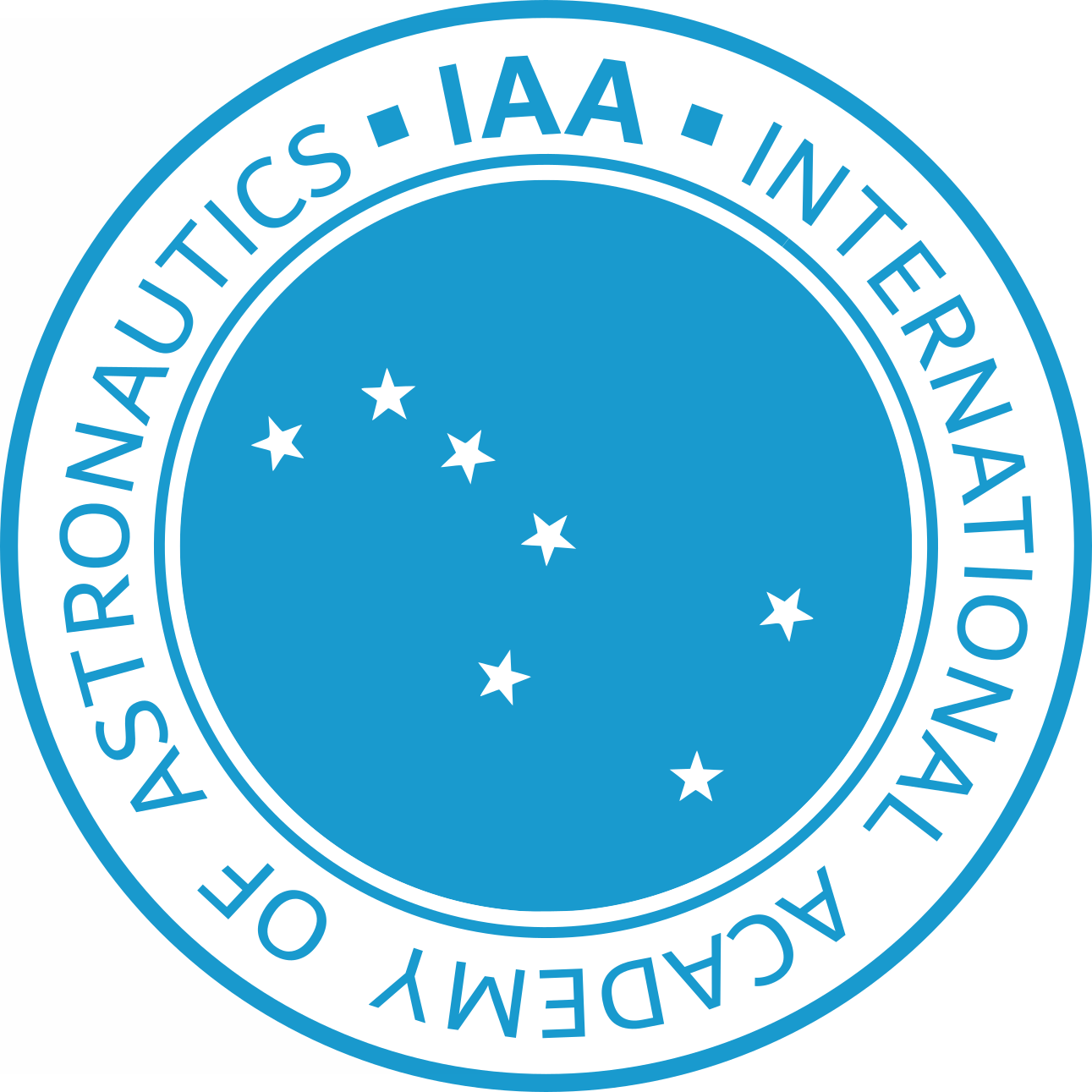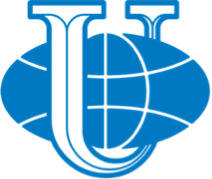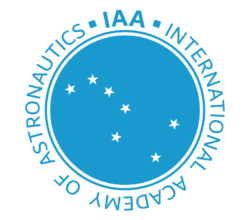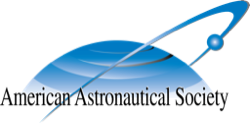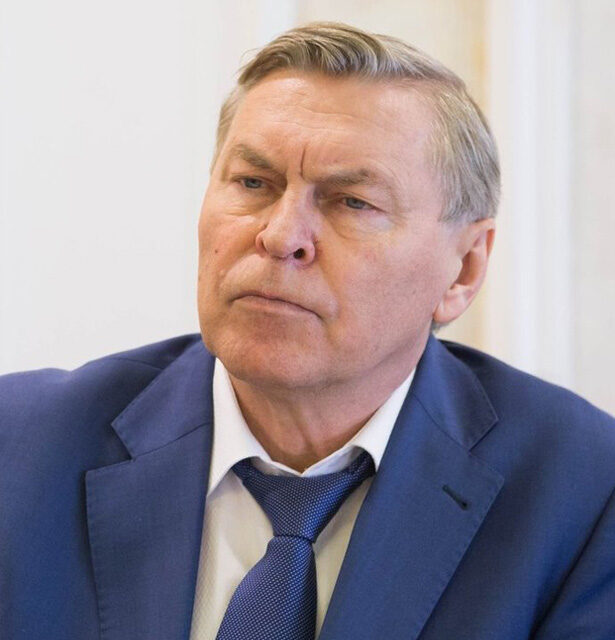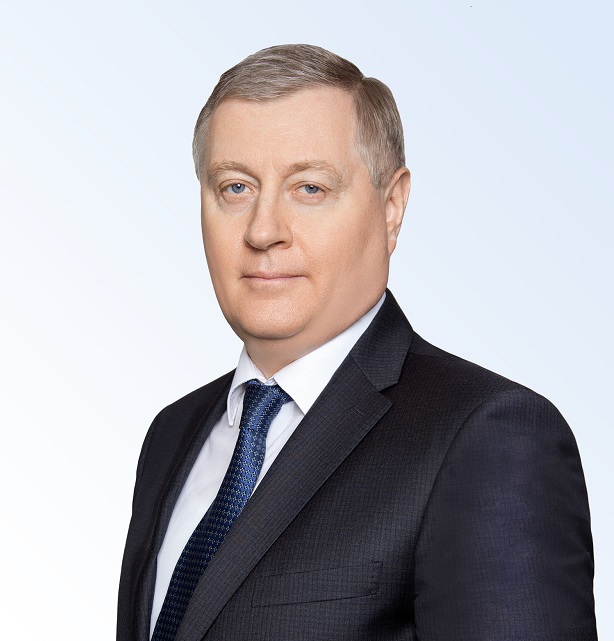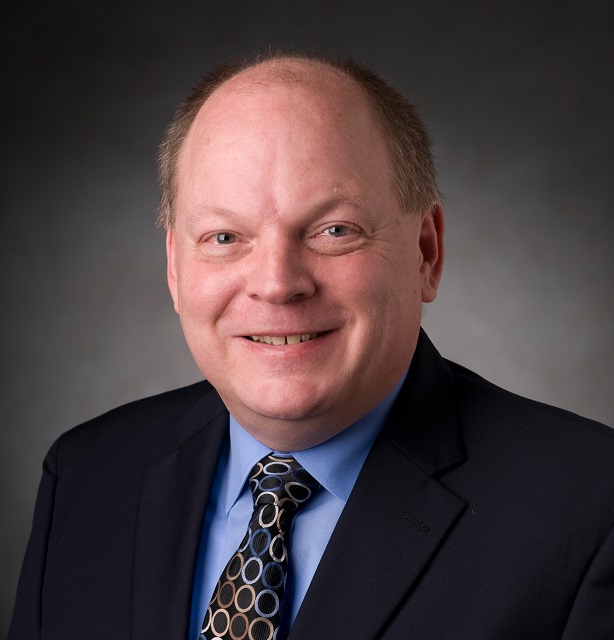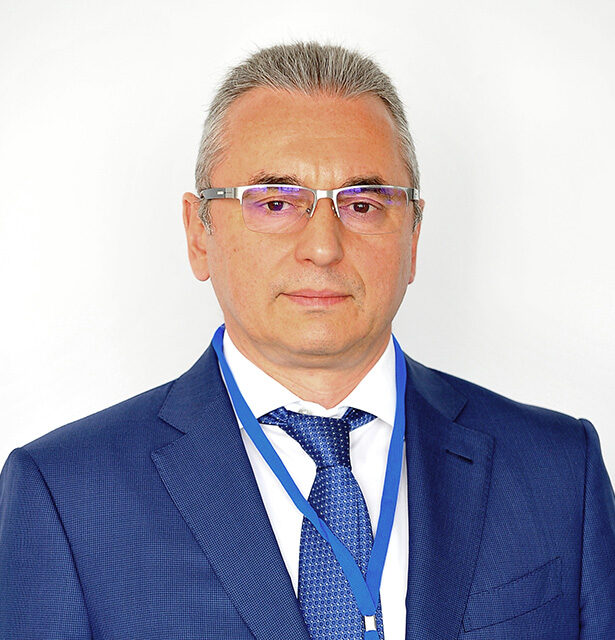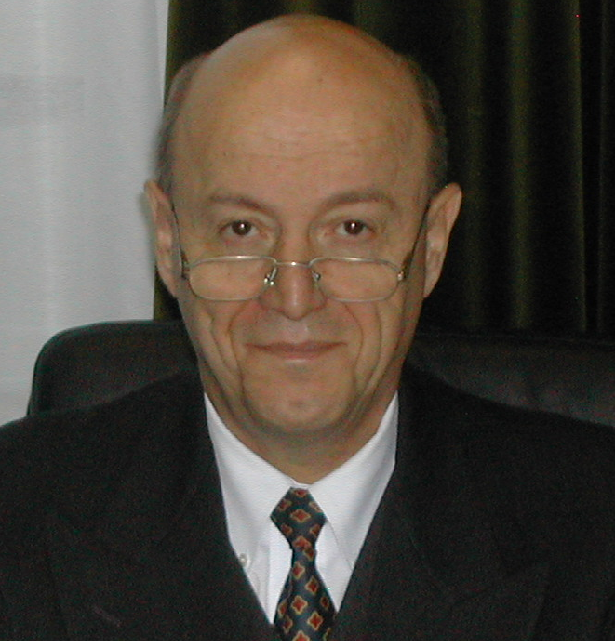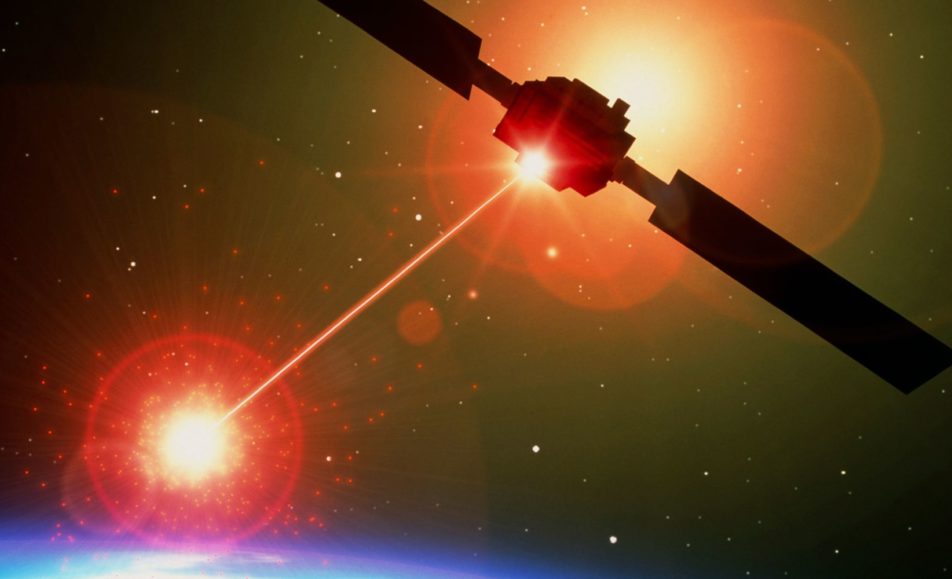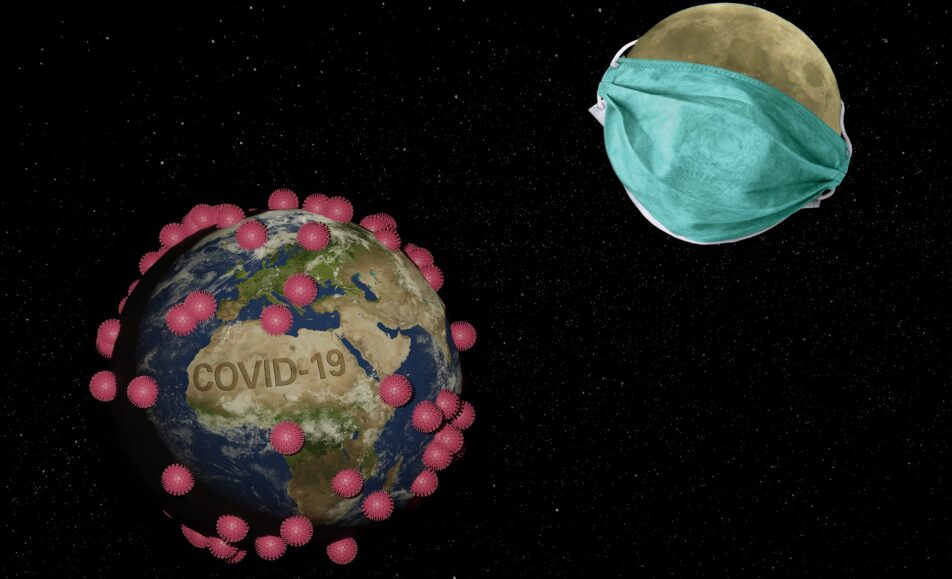
International Academy of Astronautics (IAA) in partnership with RUDN University and American Astronautical Society (AAS) hosts IAA/AAS SciTech Forum 2020 Cyber Edition including two conferences:
3rd IAA/AAS Conference on Space Flight Mechanics
3rd IAA/AAS Conference on Space Structures and Materials
Due to the unfolding COVID-19 outbreak and travel restrictions, the Forum will be held on the basis of RUDN University virtual platform and the participation in the Forum will be remote.
IAA/AAS SciTech Forum 2020 Cyber Edition will be held in Moscow on December 8-10, 2020, where RUDN University will welcome specialists from all around the world.
RUDN University, Moscow, Russia is the only university in the world that unites students and specialists from more than 150 countries, a meeting point for different cultures and viewpoints, and at the same time – an expanding platform for space education, a place for research and discussion. The working language of IAA/AAS SciTech Forum 2020 Cyber Edition will be English.
- Abstract Submission deadline
6th December 2020 (Extended) - Paper Submission deadline
7th December 2020 (Extended) - Presentation Submission deadline
7th December 2020 (Extended)
List of topics:
3rd IAA/AAS Conference on Space Flight Mechanics
Orbital Dynamics and Determination
Guidance, Navigation and Control
Mission Design and Optimization
Satellite Constellations and Formation Flying
Space Missions and Applications
3rd IAA/AAS Conference on Space Structures and Materials
Spacecraft Structures and Sensors
Advanced Space Materials
Structural Design for Space Applications
Energy Systems and Propulsion
Space Policy and Law
TECHNICAL PROGRAM
of 3rd IAA/AAS SciTech Forum 2020
on Space Flight Mechanics and Space Structures and Materials
(December 8-10, 2020)
Technical program pdf print version
| Time (CET) | Tuesday, December 8 |
| Opening Ceremony | |
| 14.00 – 15.00 | Welcome speeches:
Sergey Saveliev Deputy Director General State Space Corporation “ROSCOSMOS”, Russia Vladimir Filippov President RUDN University, Russia Jean-Michel Contant Secretary-General International Academy of Astronautics (IAA), France David Spencer Pennsylvania University, Vice President American Astronautical Society (AAS), USA Yury Razoumny Chair International Program Committee IAA/AAS SciTech Forum, |
| 15.00 – 15.30 | Gala Concert of the students of RUDN University |
| 15.30 – 16.30 | Round Table 1. “Space traffic management: space object trajectory estimation”
Moderator: Moriba Jah, University of Texas at Austin, USA Rapporteurs: Richard Linares, Massachusetts Institute of Technology, USA |
| 16.30 – 17.00 | Highlight Lecture 1. “SPHERA complex program of space information technologies”
Sergey Prokhorov, State Space Corporation “ROSCOSMOS”, Russia |
| 17.00 – 17.30 | Highlight Lecture 2. “Uncertainty quantification in astrodynamics”
Massimiliano Vasile, University of Strathclyde, UK |
| 17.30 – 18.00 | Highlight Lecture 3. “Deep reinforcement meta-learning techniques for autonomous space guidance and control”
Roberto Furfaro, University of Arizona, USA |
| Wednesday, December 9 | |
| 14.00 – 15.00 | Round Table 2: “Perspectives of satellite on-orbit-servicing”
Moderator: Antonio Prado, National Institute for Space Research, Brazil Rapporteurs: Arun Misra, McGill University, Canada Brij N. Agrawal, Naval Postgraduate School, USA Vladimir Razoumny, RUDN University, Russia Irina Chernykh, RUDN University, Russia |
| 15.00 – 15.30 | Highlight Lecture 4. “Astrodynamics applications in space traffic management and deep space exploration”
Richard Linares, Massachusetts Institute of Technology, USA |
| 15.30 – 16.00 | Highlight Lecture 5. “Constellation design for regional space-borne geolocation”
Pini Gurfil, Technion – Israel Institute of Technology, Israel |
| 16.00 – 16.30 | Highlight Lecture 6. “Toward a space domain digital twin for decision intelligence”
Moriba Jah, University of Texas at Austin, USA |
| 16.30 – 17.00 | Highlight Lecture 7. “Spacecraft guidance and control based on second-order optimality conditions”
Mauro Pontani, Sapienza University of Rome, Italy |
| 17.00 – 17.30 | Highlight Lecture 8. “Current status of the theory of functional connections with applications”
Daniel Mortari, Texas A&M University, USA |
| 17.30 – 18.00 | Highlight Lecture 9. “A survey on the powered swing-by maneuvers”
Antonio Prado, National Institute for Space Research, Brazil |
| Thursday, December 10 | |
| 14.00 – 15.00 | Round Table 3: “New developments in space resources governance: formation of new legal norms or noncompliance with the existing law”
Moderator: Irina Chernykh, RUDN University, Russia Rapporteurs: Aslan Abashidze, RUDN University, Russia Alexey Ispolinov, Lomonosov Moscow State University, Russia Jayakumar Venkatesan, Valles Marineris International, India Eleonora Lombardi, Fondazione E. Amaldi, Italy |
| 15.00 – 15.30 | Highlight Lecture 10. “Design of multiple near-earth asteroid rendezvous missions”
Matteo Ceriotti, University of Glasgow, UK |
| 15.30 – 16.00 | Highlight Lecture 11. “NetSat: pioneering formation flight in 3D by nano-satellites”
Klaus Schilling, Zentrum fuer Telematik, Germany |
| 16.00 – 16.30 | Highlight Lecture 12. “Earth observation applications in forest fire management: a European Mediterranean perspective”
Ioannis Zois Gitas, Aristotle University of Thessaloniki, Greece |
| Closing Ceremony | |
| 16.30 – 17.15 | Musical Salon of RUDN University “Moon rhapsody” |
TECHNICAL SESSIONS
3rd IAA/AAS Conference on Space Flight Mechanics:
Orbital Dynamics and Determination
Guidance, Navigation and Control
Mission Design and Optimization
Satellite Constellations and Formation Flying
Space Missions and Applications
3rd IAA/AAS Conference on Space Structures and Materials:
Spacecraft Structures and Sensors
Advanced Space Materials
Structural Design for Space Applications
Energy Systems and Propulsion
Space Policy and Law
GENERAL INFORMATION
The program of the technical session and sessions presentations will be available for all the authors of the papers submitted to IAA/AAS SciTech Forum 2020 during the period of December 8-10, 2020.
Access to the main events of the IAA/AAS SciTech Forum 2020 will be available to whoever have registered and joined the broadcast without limitation by the following link:
https://us02web.zoom.us/webinar/register/WN_KN0DUWhTSxyuBgrWZfhnPQ
Co-Chairs:
| Yury Razoumny | RUDN University, Russia |
| Filippo Graziani | Sapienza University of Rome, Italy |
| Anna Guerman | University Beira Interior, Portugal |
| Jean-Michel Contant | International Academy of Astronautics, France |
Members:
| David B. Spencer | Penn State University, USA |
| Christophe Bonnal | CNES, France |
| Roberto Furfaro | University of Arizona, USA |
| Eberhard Gill | Delft University of Technology, Netherlands |
| Kathleen Howell | Purdue University, USA |
| Brij Agrawal | Naval Postgraduate School Monterey, USA |
| Bok Jik Lee | Seoul National University, Korea |
| Robert Melton | Penn State University, USA |
| Arun Misra | McGill University, Canada |
| Daniele Mortari | Texas A&M University, USA |
| Rock Jeng-Shing Chern | Ryerson University, Canada |
| Alfred Ng | Canadian Space Agency, Canada |
| Antonio B. Prado | National Institute for Space Research, Brazil |
| Daniel Scheeres | University of Colorado Boulder, USA |
| Paolo Teofilatto | Sapienza University of Rome, Italy |
| Renuganth Varatharajoo | University Putra, Malaysia |
| Giovanni Palmerini | Sapienza University of Rome, Italy |
| Fabio Celani | Sapienza University of Rome, Italy |
| Eva Yi-Wei Chang | China University of Science and Technology, Taiwan |
| Wang Zhaokui | Tsinghua University, China |
| Djojodihardjo Harijono | University Putra, Malaysia |
| Pini Gurfil | Technion – Israel Institute of Technology, Israel |
| Tetsuo Yasaka | Kyushu University, Japan |
| Pahl Peter-Jan | Technische Universität Berlin, Germany |
| Sergey Reznik | Bauman Moscow State Technical University, Russia |
| Vera Galishnikova | RUDN University, Russia |
| Valery Karnevich | RUDN University, Russia |
Yury Razoumny
Evgenia Erokina
Valery Karnevich
Vladimir Razoumny
Ksenia Benevolskaya
Irina Andruschenko
Find the leaflet including topic areas for papers...
Authors are encouraged to submit abstracts for presentations in the following topics (but not limited to):
3rd IAA/AAS Conference on Space Flight Mechanics
Orbital Dynamics and Determination
Guidance, Navigation and Control
Mission Design and Optimization
Satellite Constellations and Formation Flying
Space Missions and Applications
3rd IAA/AAS Conference on Space Structures and Materials
Spacecraft Structures and Sensors
Advanced Space Materials
Structural Design for Space Applications
Energy Systems and Propulsion
Space Policy and Law
Papers for the Forum shall be selected basing on the quality of 500 words extended abstracts. For accepted abstracts complete manuscripts and presentations should be submitted before the Forum starts. Please note the key dates.
Key Dates
Abstract Submission Deadline – 6th December, 2020.
Notification of Acceptance – three working days after submission.
Paper Submission Deadline – 7th December, 2020.
Presentation Submission Deadline – 7th December, 2020.
Manuscripts Publishing
The manuscripts presented on the conferences are published as a special volume in AAS Advances in the Astronautical Sciences series by Univelt, Inc., San Diego, CA, USA, indexed in Scopus, Web of Science and Ei Compendex.
All manuscripts must be original and not simultaneously submitted to another journal or conference.
It is the responsibility of the author to obtain any required government or company reviews and/or clearances of their papers prior to submission, as well as any necessary reprinting permissions.
Abstracts and manuscripts submission can be done through a web-based submittal system EasyChair. To proceed to the IAA/AAS SciTech Forum 2020 Cyber Edition submission page authors need to log in to their EasyChair account, or create one, if they haven’t done it before. The authors are expected to submit short 100 words abstracts by filling the corresponding field in the submission form as well as upload 500 words extended abstracts using the file upload manager. 100 words abstracts shall be included into the Forum Program.
Manuscript format instructions are shown on Univelt Submission Guidelines page, or can be directly downloaded in zip archives in MS Word and LaTeX templates.
Find the registration process instructions...
Please register here: Forum registration link
Participation in the IAA/AAS SciTech Forum 2020 Cyber Edition is free. There is no registration fee to be paid. All the expenses, including publication charges, are covered by organizer.
It is possible to participate in the Forum both with, and without manuscript presentation. We welcome to participate in the Forum without manuscript presentation all the world space community for free by using the links on the Forum website.
Those who would like to present manuscript at the Forum should complete the registration by submitting an abstract through a web-based submittal system EasyChair and proceed to the registration and submission page <https://easychair.org/conferences/?conf=3rdiaaaasscitechforu>. The detailed instructions are provided in the Submission section.
RUDN University was founded on February 5, 1960 by the USSR Government. On February 22, 1961 RUDN University was named after Patrice Lumumba – one of the symbols of the African peoples’ fight for independence. Students and academics could be free to pursue their learning, teaching, and research activities in different fields of sciences without being subject to political context, but firmly directed to the grand principles of friendship and mutual support.
The research engagement for students is one of the main initiatives in RUDN University. The university cultivates and supports research partnerships between undergraduate students and the faculty members of the RUDN University. Such method of cooperation provides an opportunity for undergraduate students, to work as part of the team on a faculty member’s research project or to participate in a case competition requiring intensive research. RUDN University engages the students more fully in the learning process and enables undergraduates to gain an appreciation of the role of research in all the spheres.
Astrus and Salut Hotels are both situated within easy reach of RUDN University. If you are interested in staying in these hotels with a special discount available to SciTech Forum participants, please fill the application form and forward it to the email, indicated in the application.
| Salut Hotel 146 Leninskiy Av., Moscow, Russia |
Astrus Hotel 146 Leninskiy Av., Moscow, Russia |
 |
 |
 |
 |
| Salut Hotel to RUDN University 23 min (1,7 km) |
Astrus Hotel to RUDN University 11 min (850 m) |
If after notifying us of choosing Astrus or Salut hotels you should decide to reconsider your accommodation arrangements, please, kindly inform us about this decision before the said date.
Transfer and transport accessibility
During SciTech Forum bus transfers between Salut and Astrus Hotels and the Forum venue will be implemented. After technical programs, transfers back to the Hotels and to social events will be available. The bus schedule will be posted on this page 5-7 days before the Forum starts.
RUDN University provides visa support. If the author requires Russian visa to attend 3rd IAA/AAS SciTech Forum 2020, please, apply for the official Invitation Letter by filling in the application form.
The filled and signed application form along with the copy of the author’s passport should be forwarded to email, indicated in the application.
Tourist visa via official hotels
For delegates who are unable to meet the submission deadline for visa applications through RUDN University, it is possible to apply for tourist visa through respective iVisa systems of the following hotels.
– The Hotel Salut iVisa link: http://www.hotelsalut.ru/en/ivisa
– The Hotel Astrus iVisa link: http://www.astrus.ru/en/visa-support
 RUDN University
RUDN University
RUDN University was founded on February 5, 1960 by the USSR Government. On February 22, 1961 RUDN University was named after Patrice Lumumba – one of the symbols of the African peoples’ fight for independence. Students and academics could be free to pursue their learning, teaching, and research activities in different fields of sciences without being subject to political context, but firmly directed to the grand principles of friendship and mutual support.
The research engagement for students is one of the main initiatives in RUDN University. The university cultivates and supports research partnerships between undergraduate students and the faculty members of the RUDN University. Such method of cooperation provides an opportunity for undergraduate students, to work as part of the team on a faculty member’s research project or to participate in a case competition requiring intensive research. RUDN University engages the students more fully in the learning process and enables undergraduates to gain an appreciation of the role of research in all the spheres.
For more information about RUDN University please visit our official web site http://eng.rudn.ru/about
 International Academy of Astronautics
International Academy of Astronautics
Founded
August 16, 1960, Stockholm, Sweden, by Theodore Von Karman. Independent non-governmental international organization recognized by the United Nations in 1996.
Aims
Foster the development of astronautics for peaceful purposes; Recognize individuals who have distinguished themselves in a related branch of science or technology; Provide a program through which members may contribute to international endeavors; Encourage international cooperation in the advancement of aerospace science.
Structure
Regular Meeting (every two years). Board of Trustees (meets twice a year), consisting of: President; four Vice-Presidents and twenty-eight Trustees, seven from each Section: Basic Sciences, Engineering Sciences, Life Sciences, Social Sciences. Current President: Dr Madhavan G. Nair, Past-President: Prof Edward C. Stone, USA, Vice-Presidents: Mr Yannick d’Escatha, France; Prof Liu Jiyuan, China ; Dr Hiroki Matsuo, Japan; General Anatoly Perminov, Russia; Secretary General Dr Jean-Michel Contant, France.
Activities
Encourage international scientific cooperation through symposia and meetings in the area of: space sciences, space life sciences, space technology & system development, space systems operations & utilization, space policy, law & economy, space & society, culture & education; Publish cosmic studies dealing with a wide variety of topics including space exploration, space debris, small satellites, space traffic management, natural disaster, climate change, etc.
Events
Establishment of cooperation with national academies: The Royal Swedish Academy of Sciences (1985), the Austrian Academy of Sciences (1986, 1993), the Academy of Sciences of the Institute of France (1988, 2001), The Academy of Finland (1988), Indian Academy of Sciences (1990, 2007), The Royal Spanish Academy of Sciences (1989), German Academy of Sciences (1990), The Kingdom of Netherlands (1990), RSC: The Academies of Arts, Humanities and Sciences of Canada (1991), the U.S. National Academy of Sciences (1992, 2002), the U.S. National Academy of Engineering (1992, 2002), the Israel Academy of Sciences and Humanities (1994), Norwegian Academy of Science and Letters (1995), Chinese Academy of Sciences (1996, 2013), the Academy of Sciences of Turin (1997), the Australian Academy of Sciences (1998), The Royal Netherlands Academy of Arts and Sciences (1999), the Brazilian Academy of Sciences (2000), the U.S. National Institute of Medicine (2002), Academy of Sciences of South Africa (ASSAf) and the Royal Society of South Africa (2011), National Academy of Sciences of Ukraine (2010, 2012), the Pontifical Academy of Sciences (2012).
Publications
The journal Acta Astronautica first appeared in 1955, and is published monthly under the auspices of the IAA Publications Committee. The Acta Astronautica Journal covers developments in space science, engineering, life science and social science related to “peaceful scientific exploration of space and its exploitation for human welfare and progress.”
IAA is totaling more than 50 cosmic studies, book series and dictionaries, many of them available at https://shop.iaaweb.org.
Members
Full Members: 968, Corresponding Members: 229, in four sections and among 84 countries.
– Africa: Algeria, Burkina Faso, Cameroon, Egypt, Ethiopia, Ivory Coast, Libya, Morocco, Nigeria, Senegal, South Africa, Tunisia.
– Americas: Argentina, Bolivia, Brazil, Canada, Chile, Columbia, Cuba, Mexico, Uruguay, USA, Venezuela.
– Asia: Bahrain, Burma, China, India, Indonesia, Israel, Japan, Kazakhstan, Korea, Kuwait, Kyrgyz Republic, Malaysia, Mongolia, Pakistan, Saudi Arabia, Singapore, Sri Lanka, Syria, Thailand, Turkey, Vietnam.
– Europe: Armenia, Austria, Belarus, Belgium, Bulgaria, Croatia, Czech Rep., Denmark, Estonia, Finland, France, Germany, Greece, Hungary, Ireland, Italy, Latvia, Macedonia, Netherlands, Norway, Poland, Romania, Russia, Serbia, Slovakia, Slovenia, Spain, Sweden, Switzerland, United Kingdom, Ukraine.
– Oceania: Australia, New Zealand.
IAA Office
Office 6 rue Galilée, Po Box 1268-16, 75766 Paris Cedex 16, France; IAA Office Branches in Bangalore (India) and in Beijing (China) for its Study Center; Regional offices in Abuja (Nigeria), Tunis (Tunisia), Buea (Cameroon) and Nairobi (Kenya).
Mailing Address: IAA, PO Box 1268-16, F-75766 Paris Cedex 16, France
Telephone: 33 1 47 23 82 15, Fax: 33 1 47 23 82 16, email sgeneral(at)iaamail.org
Official Web Site: http://www.iaaweb.org
 American Astronautical Society
American Astronautical Society
Founded
Formed in 1954, the American Astronautical Society (AAS) is an independent scientific and technical group in the United States dedicated to the advancement of space science and space exploration. AAS supports NASA’s Vision for Space Exploration and is a member of the Coalition for Space Exploration and the Space Exploration Alliance. The AAS also focuses on strengthening the global space program through cooperation with international space organizations.
Activities
The AAS runs national meetings, symposia and publications. Members meet with leaders in their field and in related disciplines, exchange information and ideas, discuss career aspirations and expand their horizons.
The AAS sponsors professional, scientific and engineering meetings and maintains a publications program.
Publications
Published quarterly since 1954 by the American Astronautical Society, The Journal of the Astronautical Sciences is an archival publication devoted to the sciences and technology of astronautics. Articles are published which present significant new results, important insights, or state of the art surveys in all areas of astrodynamics, celestial mechanics, atmospheric flight mechanics, navigation and guidance, and space related sciences. Authors are encouraged to submit papers on attitude dynamics, orbit determination, trajectory optimization, space mission analysis, numerical methods, maneuvering flight vehicles, dynamics and control of large flexible space structures, and space sciences related to new astronautical systems and their applications.
Members
AAS members include engineers, scientists, administrators, institutions and corporations working in support of the nation’s space activities, as well as military space specialists, physicians, lawyers, educators, historians, journalists, artists and other professionals.
AAS Office
American Astronautical Society
6352 Rolling Mill Place, Suite 102
Springfield, Virginia 22152-2370
Email: aas@astronautical.org
Phone: +1 703-866-0020
Fax: +1 703-866-3526
Official Web Site: https://astronautical.org

The 1st IAA SciTech Forum on Space Flight Mechanics and Space Structures and Materials (SciTech Forum 2018) was held on November 13-15, 2018 by RUDN University in Moscow. This was the first in a series of events organized by the International Academy of Astronautics (IAA) with the cooperation of the American Astronautical Society (AAS) that may became a good tradition in the future.
SciTech Forum 2018 was attended by leading scientists from Massachusetts Institute of Technology (USA), Tsinghua University (China), McGill University (Canada), The University of Texas at Austin (USA), Ruprecht-Karls-Universität Heidelberg (Germany), Moscow State University (Russia), Pennsylvania State University (USA), China University of Science and Technology (Taiwan), Freie Universitaet Berlin (Germany), University of Colorado Boulder (USA), Texas A&M University (USA), Sapienza University of Rome (Italy), University of Arizona (USA), Bauman Moscow State Technical University (Russia), University at Buffalo SUNY (USA), Dalian University of Technology (India), Aristotle University of Thessaloniki (Greece), Ryerson University (Canada) and other.
The final program consisted of more than 85 of high-quality presentations and 13 highlight lectures, that were organized in two parallels conferences (IAA Conference on Space Flight Mechanics and IAA Conference on Space Structures and Materials) and five thematic sessions in each conference.

The 2nd IAA/AAS SciTech Forum on Space Flight Mechanics and Space Structures and Materials (SciTech Forum 2019) was held on June 25-27, 2019 by RUDN University in Moscow. This was the second in a series of events organized by the International Academy of Astronautics (IAA) with the cooperation of the American Astronautical Society (AAS) that became a good tradition.
The 2nd IAA/AAS SciTech Forum 2019 was attended by leading scientists from Seoul National University (South Korea), The University of Texas at Austin (USA), Pennsylvania State University (USA), Purdue University (USA), Texas A&M University (USA), Sapienza University of Rome (Italy), University of Colorado at Boulder (USA), Lomonosov Moscow State University (Russia), Bauman Moscow State Technical University (Russia), Beijing Institute of Technology (China), Symbiosis International University (India), Fluminense Federal University (Brazil) and other.
The final program consisted of more than 80 of high-quality presentations and 13 highlight lectures, that were organized in two parallels conferences and five thematic sessions in each conference.
The Conference on Space Flight Mechanics comprised five sections: Orbital Dynamics and Determination (ODD), Guidance, Navigation and Control (GNC), Mission Design and Optimization (MDO), Space Missions and Applications (SMA), and the new section – Space Law and Technical Policy (SLTP1, SLTP2).
The Conference on Space Structures and Materials comprised four sections: Spacecraft Structures and Sensors (SSS), Advanced Space Materials (ASM), Structural Design for Space Applications (SDSA), and Space Energy Systems (SES).
